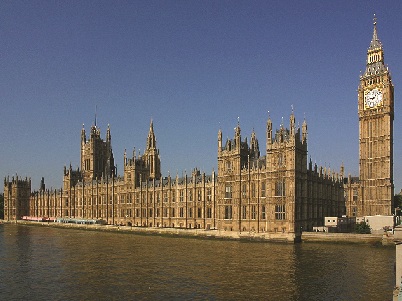The UK government has injected a second round of cash into its pound 25m Higher Apprenticeship Fund.
The funding aims to develop 4,230 new Higher Apprenticeships in sectors including low-carbon engineering, space engineering, legal services and aviation.

The latest announcement is the final part of the pound 25m project, with nine employers/training providers set to receive a total of pound 6m following a bidding process.
Employers including British Airways, Siemens, PWC, Unilever and the UK Space Agency will benefit from this round of funding.
Loughborough College will develop level-four apprenticeships in space engineering, aiming to encourage women in particular.
The City and Islington College are developing level-four apprenticeships in engineering and environmental technologies. These apprenticeships are set to help employers including National Grid, Siemens, Centrica, Unilever, MITIE, Britvic and Transport for London.
The first round of bidding for the pound 25 million fund was initially launched by the Prime Minister in July 2010. By December, nineteen employers and training providers had been awarded pound 19m for more than 19,000 degree-level apprenticeships, benefiting 250 employers. Some of these companies included Leyland Trucks, Unilever, TNT, and Burberry.
On the latest round of funding Business Secretary Vince Cable said: “Through the Higher Apprenticeship Fund we can target sectors where skills shortages are threatening to choke off growth.
“They also help us break down the doors of professions that are not representative of the society in which we live.
"It cannot be right, for example, that only 4% of registered commercial airline pilots are women.”
According to Cable, higher apprenticeships are an essential step in rebalancing the UK economy and building a fairer country where growth is spread evenly and opportunities are not limited to the privileged.
Skills minister John Hayes said higher apprenticeships allow students to pursue degree-level study while getting paid.
“Doing an apprenticeship should be one of the best gateways to university-level study," said Hayes.
"Through the Higher Apprenticeship Fund we are creating 23,000 places for young people to take degree-equivalent higher apprenticeships in sectors such as space engineering and renewable energy."
It is estimated the UK needs to train 96,300 engineers over the next four years, to replace those retirees.
David Way, chief executive of the National Apprenticeship Service, commented: “We are seeing major employers opening up recruitment and training to young apprentices. Young people and their parents can see clear opportunities to climb the jobs ladder right to the top, through taking up apprenticeships.”
Commenting on her recent experience during a Procter & Gamble Higher Apprenticeship, Lori Douglass said: “I have enjoyed every minute of my apprenticeship with P&G.
"As well as an exciting career with excellent progression opportunities, I have gained confidence and a wealth of invaluable experience and training.”
Neil Carberry, CBI director for employment and skills, said: “Businesses know that building our higher-level skills base has to be an essential part of a successful plan for growth in the long term.”
According to Carberry, future skills shortages in key sectors could hold back the UK's economic performance, so boosting higher level apprenticeships now is the right thing to do.
“Sectors like high technology, science-based advanced manufacturing and IT are a good place to start," said Carberry.
"Young people need to know higher apprenticeships are a great route to a successful career, as they can build higher level skills while learning on-the-job with an employer.”





